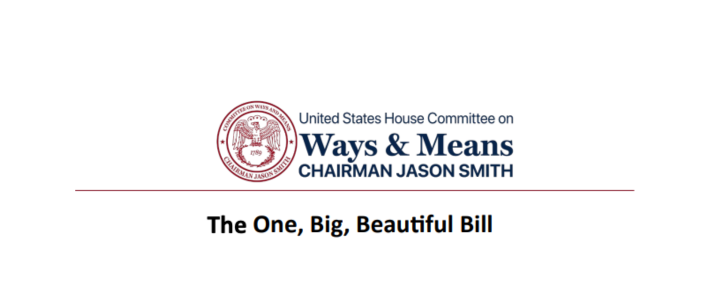Listen to the article
False Claims About “One Big Beautiful Bill” Spread Online, Experts Debunk Election Concerns
A viral graphic circulating online has made alarming claims about the House-passed reconciliation bill, including the assertion that “we won’t have another election” if the legislation becomes law. However, experts and legal analysts have thoroughly debunked these claims, finding no evidence to support most of the graphic’s warnings about what would happen if the Senate approves the bill.
Most notably, the graphic falsely alleges that the bill would allow President Donald Trump to “delay or cancel elections.” This claim directly contradicts the U.S. Constitution, which explicitly gives Congress and states—not the president—the authority to set federal election dates. The bill contains no provisions that would alter this constitutional arrangement.
“The bill does not say anything about delaying or canceling elections,” said Eric Kashdan, senior legal counsel for the Campaign Legal Center, which reviewed the legislation. “Congress and the states are the ones who have power over elections, not the president.”
The Congressional Research Service has repeatedly clarified that neither the Constitution nor existing federal law provides any power to the president to change election dates outside of Congress’s regular legislative process. The Electoral Count Reform Act of 2022 reinforced that only states have limited options to postpone voting in presidential elections, and only in cases of “extraordinary and catastrophic” events.
The viral graphic, which has been circulating since at least late May, lacks citations or evidence for its numerous claims. Among other allegations, it states that the bill would allow protests to be “tracked and criminalized” and that virtual private networks (VPNs) would be “tracked”—neither of which appears anywhere in the legislation.
However, legal experts have identified one claim with partial merit. The graphic states that under the bill, “judges can’t enforce their own orders,” likely referring to Section 70302, which could limit judges’ power to hold the administration in contempt for violating court orders.
This section would prevent courts from enforcing contempt citations for failure to comply with injunctions or temporary restraining orders if no security bond was given when the order was issued. Walter Olson, a senior fellow at the Cato Institute, confirmed that this provision “really does tie the judge’s hands,” as federal judges rarely set security bonds for government cases in the public interest.
“Without the contempt power, judicial orders are meaningless and can be ignored,” wrote Erwin Chemerinsky, dean of the University of California, Berkeley School of Law. Critics view this as a potential way for the administration to circumvent judicial rulings blocking presidential policies.
However, the provision’s future remains uncertain, as the Congressional Budget Office determined it “would have no budgetary effect,” which could cause it to be removed under Senate reconciliation rules that require provisions to directly impact the budget.
Regarding the claim that the bill would allow firing government workers for “political disloyalty,” Section 90002 would require some new federal employees to either become at-will employees or contribute more to their pension. While at-will employees could be removed “for good cause, bad cause, or no cause at all,” legal experts note that termination for explicitly political reasons would likely still violate constitutional protections.
“If enacted even with the at-will language, an individual fired for political beliefs would have valid First Amendment claims,” explained Michael Foreman, a clinical professor at Penn State Dickinson Law.
The graphic also makes vague claims about the bill “gutting” LGBTQ+ rights, education, health care, and media. While the legislation does include provisions restricting health services for transgender people and changes to educational funding and loans, there are no provisions explicitly targeting media freedom.
Health care provisions in the bill could significantly impact coverage. The Congressional Budget Office projects that work requirement changes for Medicaid could lead to 5.2 million people losing coverage by 2034, with 4.8 million becoming uninsured. Overall, various provisions could result in 10.9 million more uninsured Americans by that year.
As this misleading graphic continues to spread, fact-checkers emphasize the importance of consulting primary sources and expert analysis rather than relying on unsourced claims about complex legislation.
Fact Checker
Verify the accuracy of this article using The Disinformation Commission analysis and real-time sources.




9 Comments
This fact check provides a valuable service in clarifying the real contents of the reconciliation bill, versus the exaggerated and untrue allegations circulating online. Responsible reporting is essential for an informed public.
This article does a thorough job refuting the false assertions about the reconciliation bill. I’m glad to see the experts consulted and the constitutional principles explained. Fact-checking is crucial on complex policy issues.
The details in this article help clarify the true contents of the reconciliation bill, which seems quite different from the exaggerated claims in the viral graphic. It’s a good reminder to be skeptical of unverified online claims.
I appreciate the objective, legal analysis provided in this fact check. It’s important to understand the actual provisions of legislation, not just sensationalized online rumors. This helps inform the public debate.
The detailed debunking in this article is really helpful for understanding the facts around the reconciliation bill, versus the misleading claims in the viral graphic. It’s a good reminder to rely on authoritative sources.
This fact check provides a helpful debunking of the false claims about the House reconciliation bill. It’s important to rely on expert analysis and the Constitution when assessing legislation, not viral graphics with misleading information.
Agreed, the nonpartisan analysis from legal experts is reassuring that the bill does not contain the concerning provisions alleged in the viral graphic.
It’s concerning to see misinformation and conspiracy theories spreading so quickly online about this legislation. I’m glad the article took the time to thoroughly fact-check the claims and provide the constitutional context.
Absolutely, responsible reporting and fact-checking are crucial to counter the spread of harmful disinformation, especially when it comes to important policy debates.